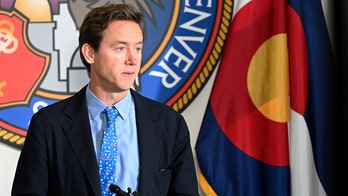What would a contested Democratic National Convention look like?
The Democrats' wild 2020 presidential contest has left open the possibility there may not be a clear nominee going into the Democratic National Convention. Here's what we can expect from a contested convention.
The Democrats' wild 2020 presidential contest has left open the possibility that no candidate will win outright the required number of delegates to automatically lock up the party's nomination at the Democratic National Convention.
What would happen in such a situation? Here is a look at how it could play out.
Where would this happen?
The Democratic National Convention -- scheduled for July in Milwaukee -- is where the party's nominee is officially determined. Normally this is a formality, where one candidate has the requisite majority of delegates who are pledged to them for the first ballot, or round of voting.
How many delegates are needed to win?
There are a total of 3,979 delegates up for grabs in the primaries and caucuses that will then be pledged to specific candidates, so someone would need to have 1,991 of them in their camp to ensure that they have the nomination locked up on the first ballot.
What happens if no candidate wins on the first ballot?
If no one has 1,991 delegates in the first ballot, all of the delegates become unbound from their candidates and are free to support whoever they choose. The process for determining who these individuals are is outlined in the 2020 Delegate Selection Rules for the Democratic National Convention. The presidential nomination process itself is described in the 2020 Call for the Democratic National Convention.
What's the role of superdelegates?
Unpledged superdelegates come into play in the second ballot. These superdelegates, or "automatic" delegates, are generally current and former party leaders as well as members of Congress. There are 775 superdelegates, although eight of them representing Democrats outside the U.S. each have half a vote. That means 771 new votes come into play if there is a second ballot. Again, a majority is needed, so for the second and any subsequent ballot 2,375.5 votes would be needed to secure a majority and the nomination.
What happens if no candidate wins on the second ballot?
If there is no majority after the second ballot, the convention moves ahead to a third. This keeps going until one candidate has a majority. The negotiating and brokering that would go on to persuade delegates to change teams is why such a scenario is called a "brokered convention."
Is there a history of this?
This used to be normal for both parties, as delegates had not even been pledged to candidates for the first ballot until 1972. That is when Democrats began using the system of primary races to award delegates, and the GOP followed their example. In 1924, the lack of pledged delegates resulted in a 17-day Democratic National Convention with 124 ballots. The eventual victor, John Davis, ended up losing in the general election to Calvin Coolidge.
CLICK HERE TO GET THE FOX NEWS APP
During a recent Democratic debate, candidates were asked if they are in favor of the current system, or if the nomination should automatically go to whichever candidate has the most delegates going into the convention, even if they do not have a majority. Only Sen. Bernie Sanders, I-Vt., thought it should be changed.




